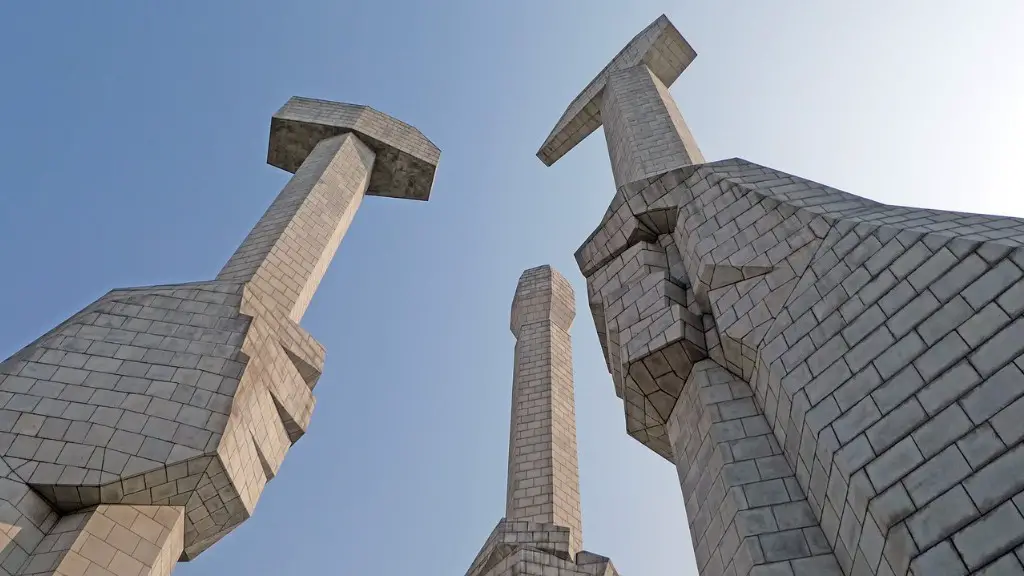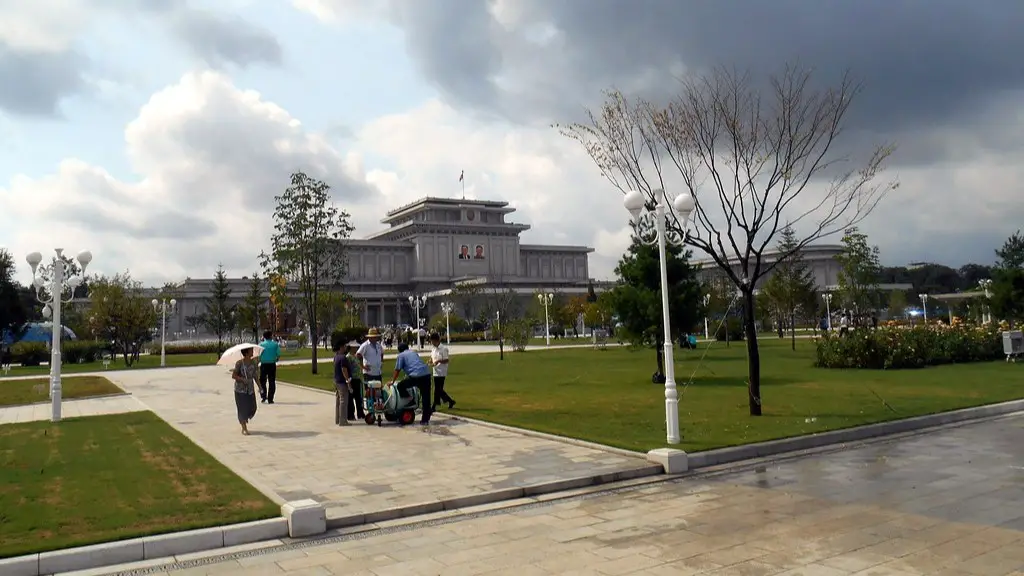Background Information
The Korean War was a conflict that occurred from 1950 to 1953 in the divided nations of North Korea and South Korea. North Korea, led by the communist leader Kim Il Sung, began the war when it attempted to invade South Korea in June 1950. The United Nations Security Council quickly approved the deployment of troops from the United States and other countries in response to the invasion. The Chinese government, which had established a close relationship with North Korea during World War II, sided with the North during the war and sent hundreds of thousands of its own troops to fight against the UN-backed forces.
Reasons Behind Chinese Support
At the start of the war, China saw North Korea as a valuable ally in their struggle against the Western nations, which they perceived as imperialistic forces. China had fought alongside North Korea during World War II and saw its victory over the South Korean forces as a victory for communism. From a strategic perspective, the Korean War allowed China to establish itself as a regional power and gain valuable ground in East Asia. Moreover, they saw it as a way to prevent US troops from being too close to their borders and viewed the US-backed South Korea as a threat to their own national security.
Chinese Intervention
Throughout the war, the Chinese often sent troops and material aid to the North Korean forces. Although their most active participation occurred during the first half of the war, Chinese troops and equipment were deployed at various times during the fighting. Chinese forces did not openly enter the war until October 1950, but they provided a steady stream of reinforcements to the North Koreans. The Chinese forces also played a crucial role in helping the North Koreans regain control of Seoul in late 1950, a major turning point in the conflict.
Political and Military Tactics
The Chinese also employed political and military tactics to try to gain the upper hand in the war. For example, they supported guerrilla warfare tactics such as night raids and sniper attacks. They also provided the North Koreans with military training, equipment and supplies.
Mutual Ideological Interests
In addition to strategic and military reasons, the Chinese support for the North Koreans during the Korean War was also influenced by their shared ideological interests. China and North Korea both subscribed to communist ideologies and wanted a united Korea under the control of the North. North Korea’s invasion of the South was meant to be a way to extend the Communist revolution to other nations.
Chinese Involvement in the Armistice Negotiations
The Chinese government also played an important role in negotiating the armistice that ended the Korean War in July 1953. The Chinese government was a signatory to the armistice, and the negotiations were conducted in China. The armistice was considered a victory for the Chinese government, as it prevented further US intervention in East Asia and allowed them to gain more power and influence in the region.
Conclusion of the Korean War
The Korean War ended in a stalemate, with neither North nor South Korea gaining a decisive victory. The Chinese had played a major role in keeping the war from escalating into a larger international conflict and in helping negotiate the armistice. The Chinese government’s support for North Korea during the Korean War was a major factor in the war’s outcome.
Media Coverage of Chinese Support for North Korea
In the years since the war, many media outlets have highlighted China’s support for North Korea, often focusing on the political and strategic aspects of the alliance. While the Chinese government’s support of North Korean forces was motivated by strategic and ideological considerations, many media sources have raised questions about the morality of the Chinese government’s actions.
International Reaction
The Chinese government’s support for North Korea also drew criticism from the international community. The US and other Western nations condemned China’s support for the North Koreans as an example of communist aggression and have since sought to isolate the North Korean regime. Other nations have also distanced themselves from the North Koreans, both politically and economically.
Implications of Chinese Support
The Chinese government’s support for North Korea during the Korean War has had far-reaching implications for the region and for the relationship between the two countries. The war helped establish China as a regional power and cemented the relationship between China and North Korea. The two countries have since become close allies, and North Korea has relied on China for economic and political support, despite Western efforts to isolate the North Koreans.
Cultural Exchange
The Chinese government has also encouraged cultural exchange between the two countries. The North Koreans have adopted many Chinese customs, including traditional Chinese dress and customs, and the two countries have engaged in extensive economic and diplomatic cooperation. The Chinese government also continues to provide economic and political support to North Korea, despite US and international sanctions.
Economic Cooperation
In addition to providing political and military support, the Chinese government has been instrumental in promoting economic cooperation between North Korea and China. The two countries have signed a number of bilateral trade agreements and China remains one of North Korea’s top trading partners. China is also a major source of foreign aid for North Korea, providing the country with food, fuel and other necessities.
Military Aid
The Chinese government also continues to provide North Korea with military aid. Despite UN sanctions, China is estimated to account for 70% of North Korea’s imports, including weapons and military supplies. Chinese military equipment has been used by North Korea in conflicts such as the Korean War and the recent standoffs with South Korea.
Conclusion
The Chinese government’s support for North Korea during the Korean War was an important factor in the war’s outcome. The Chinese government saw North Korea as an ally in the fight against imperialism and a way to extend their influence in East Asia. Their support for the North Koreans during the war allowed them to gain a strategic foothold in the region and establish China as a major power. Since then, China and North Korea have become close allies and continue to engage in economic and political cooperation.



